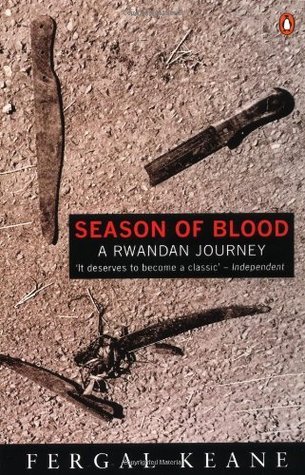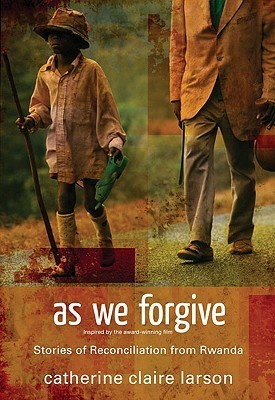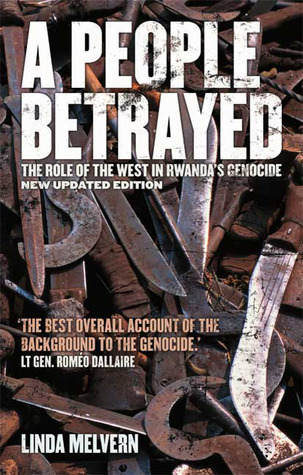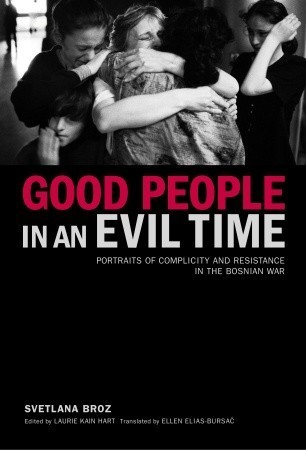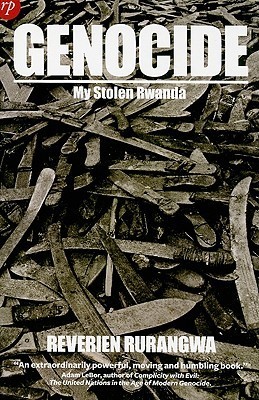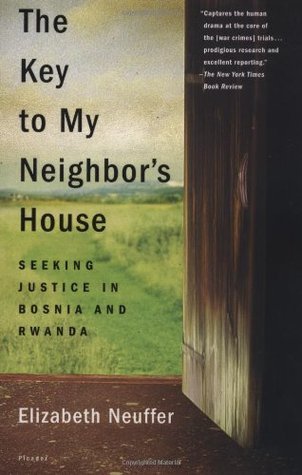
The Key to My Neighbor's House: Seeking Justice in Bosnia and Rwanda
Book Description
What happens when justice stumbles in the shadow of horror? Elizabeth Neuffer invites you into the heart of two devastating conflicts: Bosnia and Rwanda. With vivid storytelling, she exposes the human struggle against the chilling backdrop of genocide. We witness the courage of survivors and the relentless pursuit of truth, as paths converge into a powerful quest for accountability. Amid unspeakable loss, hope flickers in unexpected places. Detailing the fight for justice, Neuffer uncovers the resilience of the human spirit. Can the lessons learned from these harrowing histories guide a brighter future?
Quick Book Summary
"The Key to My Neighbor's House" by Elizabeth Neuffer explores the aftermath of genocide in Bosnia and Rwanda, personalizing the struggle for justice through the stories of survivors, perpetrators, and the communities seeking reconciliation. Neuffer, a seasoned journalist, combines investigative reporting with deeply human narratives to illuminate the complexities of establishing accountability after mass atrocities. She examines the strengths and failings of international tribunals, the difficulties of restoring trust among neighbors, and the psychological wounds left behind. The book not only documents visible scars and testimonies but also delves into the lingering questions of forgiveness, justice, and the possibility of healing. Neuffer raises urgent questions about how societies can rebuild after such devastation and whether justice is truly attainable amid the ruins of atrocity.
Summary of Key Ideas
Table of Contents
The Aftermath of Genocide and the Pursuit of Justice
Elizabeth Neuffer immerses readers in the immediate and lingering aftermath of genocide, contrasting the haunted landscapes of Bosnia and Rwanda. Through evocative reporting and first-person accounts, she reveals the scale of devastation left by ethnic violence: shattered towns, fractured families, and widespread trauma. Neuffer frames her narratives with haunting questions about responsibility, exploring not only the perpetrators but also the bystanders and those called to rebuild. Her approach personalizes vast political tragedies, grounding them in individual stories that reveal the nuances of loss, fear, and determination.
The Limits and Challenges of International Tribunals
International justice efforts, particularly the work of tribunals in The Hague and Arusha, occupy a central place in Neuffer’s analysis. She critically examines their effectiveness, exploring successes and failures in prosecuting war criminals. The author contends with the inherent challenges of achieving justice in the wake of mass atrocity: legal ambiguities, delays, limited resources, and political resistance. She underscores how these institutions can provide a measure of recognition and validation for survivors, even as they struggle with limitations and criticisms about impartiality and reach.
Personal Narratives: Survivors and Perpetrators
The book’s heart lies in its personal stories—survivors recounting unimaginable losses, perpetrators offering self-justifications, and families wrestling with grief and suspicion. Neuffer’s interviews expose the complex human emotions that linger after mass violence. Many survivors confront returning neighbors—sometimes those directly complicit in crimes. The book highlights the emotional and psychological toll of living side-by-side with those who inflicted pain and the complicated path toward rebuilding even a semblance of ordinary life.
Community Reconciliation and Forgiveness
Beyond courts and tribunals, Neuffer surveys grassroots attempts at reconciliation and forgiveness. She documents local initiatives where communities engage in dialogue, revisit painful memories, and make tentative steps toward mutual understanding. The process is neither linear nor easy, marked by setbacks and persistent distrust. Yet, hope flickers in stories of resilience, where individuals and communities endeavor to construct new foundations for coexistence, suggesting that recovery is possible, even if imperfect.
Lessons for Preventing Future Atrocities
Ultimately, Neuffer asks whether the international community can learn from Bosnia and Rwanda to prevent future atrocities. She argues that true justice must combine legal accountability with social and psychological healing. The book closes by urging global vigilance, compassion, and concerted action to address the roots of hatred and division. Neuffer’s exploration insists that while justice is elusive and imperfect, the pursuit itself is necessary for humanity’s renewal after the worst crimes imaginable.
Download This Summary
Get a free PDF of this summary instantly — no email required.
